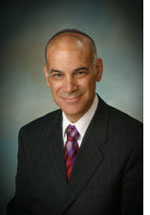By Rabbi Leonard Rosenthal

SAN DIEGO –When the singer Madonna, who is a disciple of the Kabbalah Center, decided that she wanted a Hebrew name, I found it ironic that she chose “Esther.” Esther is not a Hebrew name. Megillat Esther, the Scroll of Esther in the Bible, informs us that Esther’s Hebrew name was Hadassah, which means “myrtle.” Esther was her Persian name and is derived from the goddess Ishtar. So Madonna chose a Hebrew name which is really a Persian name meaning “Ishtar, the pagan goddess.”
But one can hardly blame Madonna, because the truth is that Esther is commonly used as a “Hebrew” or “Jewish” name. In fact, there are many Hebrew names which were adopted from other cultures and languages, including Mordechai, Alexander, and Moses (an Egyptian name). The adoption of such names into Jewish culture indicates that Judaism has always been open to outside cultural influences, sometimes to a greater and sometimes to a lesser degree.
But the division between Jewish and non-Jewish is porous in both directions. Especially in the United States we find many influences of Jews and Jewish tradition on American culture.
One example: I stopped at a local coffee cart this week and prominently displayed on the pastry shelf was a jar filled with hamantashen and labeled as such. Yiddishisms have crept into the American vocabulary (kosher, shmooze, shlep, etc.), and bagels and lox have become also as American as hot dogs and apple pie.
When Haman approached the king and asked permission to kill the Jews, one of his arguments was: “There is a certain people, scattered and dispersed among the other peoples in all the provinces of your realm, whose laws are different from those of any other people, and who do not obey the king’s laws; and it is not in Your Majesty’s interest to tolerate them.” (Ester 3:8) Haman’s strongest argument against the Jews of Persia was that they were different.
That argument would be difficult to make in America, for while we Jews still are a unique cultural and religious slice of the American population, we certainly fit in. Not only have we wholeheartedly bought into the American dream and culture, many aspects of Jewish culture have become American, as well.
The positive of this is diminished anti-Semitism and widespread acceptance of Jews by most Americans. The down side is our concern that one day the barrier between non-Jew and Jew will become so permeable that the latter will simply osmose into the former.
Such is the challenge to Jews and Judaism in an open and tolerant society.
Shabbat Shalom & Happy Purim!
*
Rabbi Rosenthal is spiritual leader of Tifereth Israel Synagogue in San Diego. He may be contacted via leonard.rosenthal@sdjewishworld.com. Comments intended for publication in the space below must be accompanied by the letter writer’s first and last name and the city and state of his/ her residence.